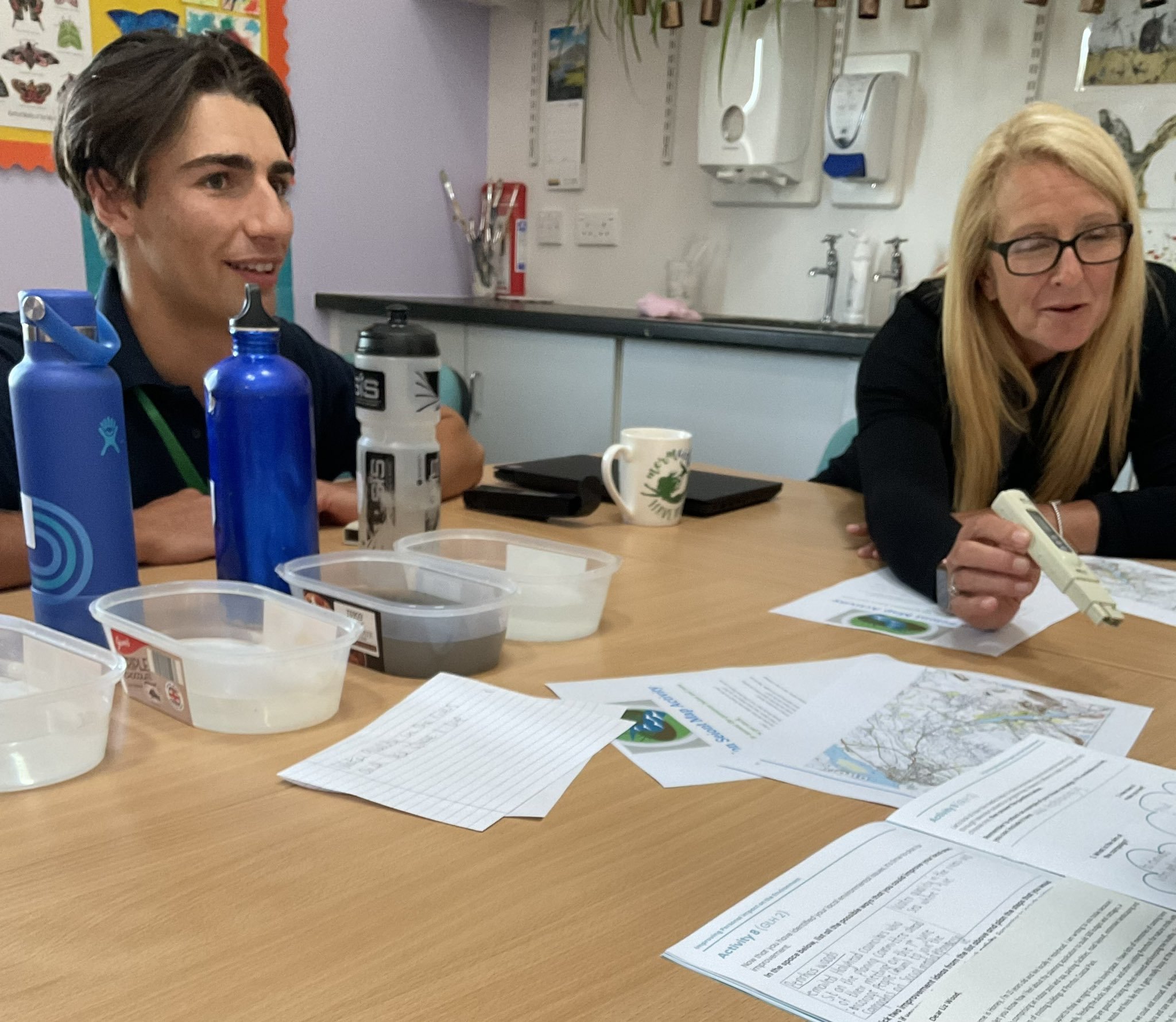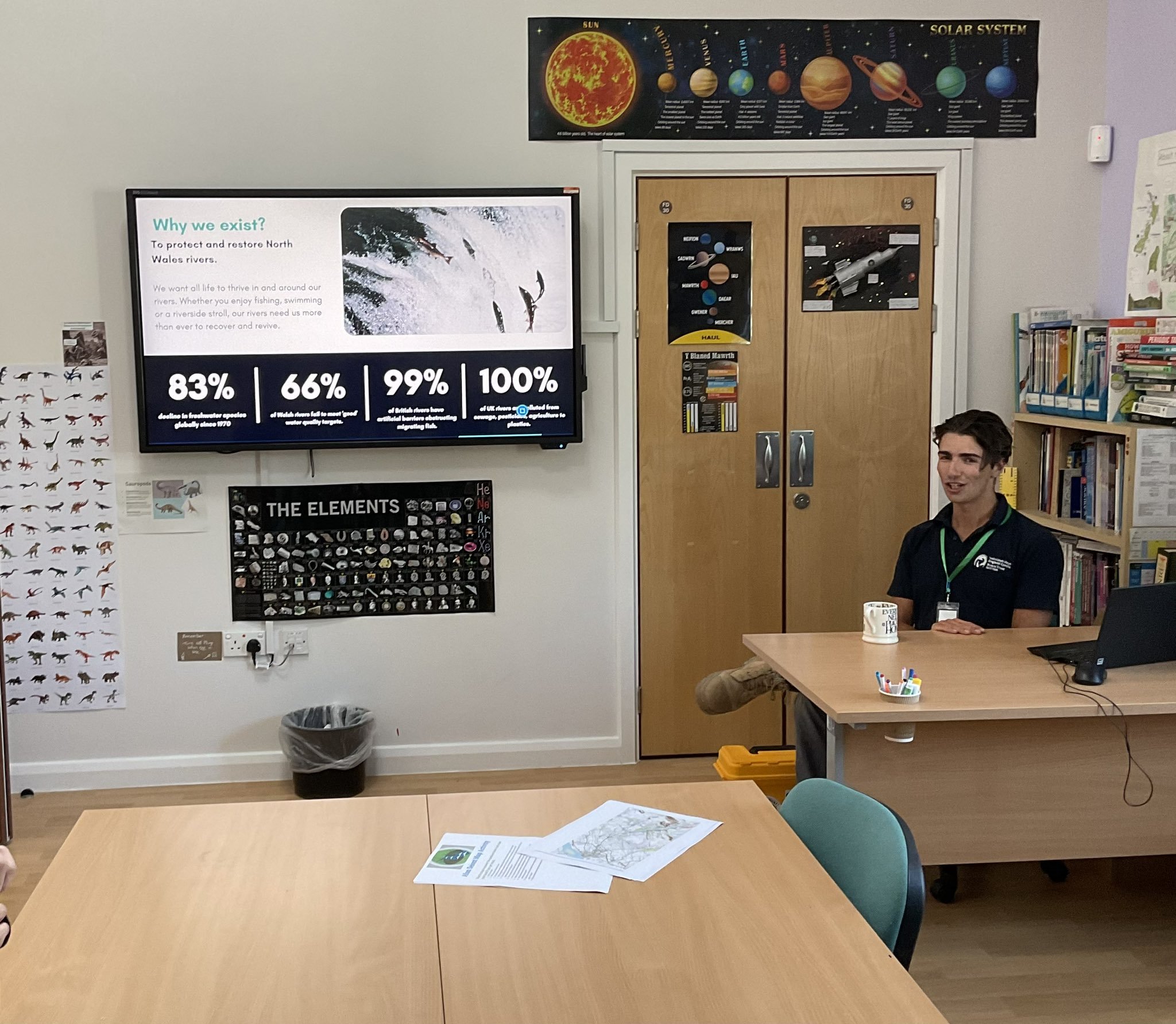June School Visits
It has been a busy few weeks here at the North Wales Rivers Trust with three school visits in the last two weeks. Each visit focused on working in the industry, water pollution and water testing.
Nant Y Bryniau
This session started by looking at some of the issues facing waterways in North Wales and the type of restoration work that can be done to resolve these issues. The session was focussed on the day in the life of a restoration officer where we completed activities to identify potential restoration work on the Seiont to improve the water quality and habitat. The session involved testing 4 different sections of the river for Phosphate, Nitrate and Electrical Conductivity before identifying where in the catchment the samples were taken and what the results could implement. The session ended with a game relating to CSO release and who’s local river had the least amount of incidents.
Twycross House School
The sixth form from Twycross was on a field trip in North Wales where they had spend the last few days learning about a variety of sampling techniques and geographical processes.
With no rain for almost a month at the time of the visit it was a great opportunity to discuss the effects of drought and pollution using Llyn Idwal. The lake is a pristine example of a high catchment water system with a very low amount of pollution (as the test results indicated). By looking down the valley we were able to identify factors that will affect Phosphate, Nitrate, Electrical Conductivity and Temperature and methods to reduce these factors.
The session ended with a Q and A about working in the charity sector and the different routes to gain experience. On the return we stopped by to look at some of the glacial striations and discuss how Llyn Idwal was formed.
Rhud Y Creuau
Around 40 sixth formers were staying at Rhyd Y Creuau learning about invertebrates. We started by giving a talk about working in the industry and highlighting some key facts about the current state of North Wales rivers including the decline of Salmon and Sea Trout. After a Q and A we went to test Ammonia, Phosphate, Nitrate, Electrical Conductivity and Temperature in the Afon Conwy as well as kick sampling for invertebrates. We then had a wider discussion about factors that will impact these results.
If you would like to enquire about an event or school talk contact: oisin@northwalesriverstrust.org







